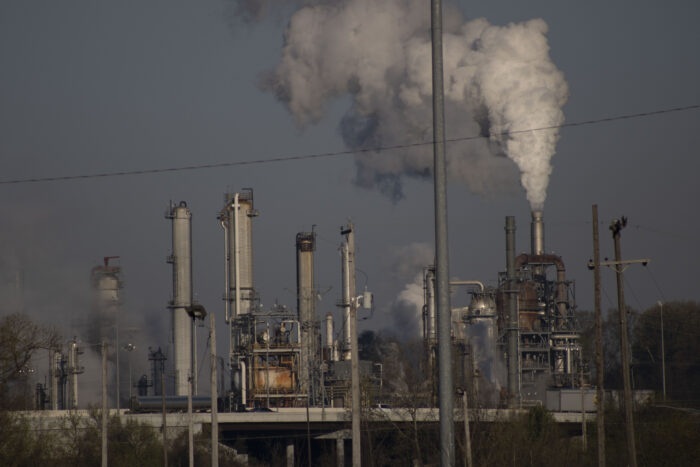Less ethylene oxide is a win for South Memphians
Updated May 3, 2024. Originally published August 30, 2023.
This week Sterilization Services of Tennessee, a company that had been pumping cancer-causing chemicals into South Memphis communities for more than four decades, closed its facility for good. The closure finally brings some relief to neighbors, who had been forced to breathe the plant’s toxic pollution for more than four decades.
Sterilization Services of Tennessee has been releasing ethylene oxide into the air since the 1970s.
Families living near the Sterilization Services of Tennessee plant have been exposed to toxic ethylene oxide pollution for far too long, and we are pleased that they may soon be able to breathe easier.
Amanda Garcia, Senior Attorney
Ethylene oxide, also known as EtO, is a colorless and odorless gas that causes increased risks for cancers, including lymphoma, leukemia, and breast cancer. The Environmental Protection Agency has found that EtO is 60 times more toxic than previously understood. In 2022, the agency listed SST’s South Memphis plant, which is surrounded by homes, churches, and daycare centers, as one of 23 facilities that carry “elevated” cancer risks for nearby residents.
Last August, attorneys for Sterilization Services of Tennessee wrote a letter to U.S. Representative Steve Cohen of Tennessee, saying the company planned to close its South Memphis facility. “Sterilization Services of Tennessee will no longer be operating a sterilization plant in Memphis, Tennessee as of April 30, 2024,” the letter reads.
‘People power works’

The closure comes after months of advocacy from community members and local organizations, like Memphis Community Against Pollution (MCAP) and the Mallory Heights Community Development Corporation, who have pushed for the Sterilization Services of Tennessee facility to either reduce the amount of ethylene oxide it releases or move out of the neighborhood.
“This long-overdue closure is the result of ‘People Power.’ When we band together, speak truth to power, and fight back against industrial polluters in our communities, justice is realized,” KeShaun Pearson, President of Memphis Community Against Pollution said. “People power works!”
Over the last year, MCAP held rallies, hosted community meetings, and reached out to local leaders about the continuous ethylene oxide pollution in South Memphis. The continuous advocacy efforts pushed the Memphis City Council and Shelby County Commission to both pass resolutions urging Sterilization Services of Tennessee to reduce its ethylene oxide emissions.
When we band together, speak truth to power, and fight back against industrial polluters in our communities, justice is realized.
Keshaun Pearson, MCAP
In February 2023, the Southern Environmental Law Center, on behalf of Memphis Community Against Pollution, requested that the Shelby County Health Department use its emergency powers to address Sterilization Services of Tennessee’s ethylene oxide pollution. When the Health Department refused, MCAP and SELC appealed that decision.
Pollution problems persist
While news of the closure comes as a relief to communities near the plant, air pollution risks continue to pose a threat in South Memphis. Residents may have already developed cancer from exposure to ethylene oxide or they may become ill in the future. Additionally, SST plans to continue to operate – and release toxic ethylene oxide – until April 2024.

While news of the closure comes as a relief to communities near the plant, air pollution risks continue to pose a threat in South Memphis. Residents may have already developed cancer from exposure to ethylene oxide or they may become ill in the future.
“There is an air pollution emergency right now in South Memphis, and Sterilization Services of Tennessee should close and relocate as quickly as they can,” Garcia said.
In addition, South Memphis, which is made up of predominantly Black neighborhoods, continues to be overburdened with industrial facilities that impact air quality and threaten the health of nearby communities. SELC and MCAP will continue to push local leaders and industry to better protect Memphians from dangerous air pollution – no matter the source.
